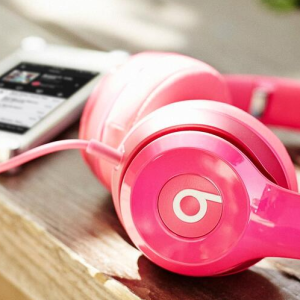We live in a fundamentally transformed world where devices fueled by widespread Internet connectivity are now an indelible part of most people’s lives. As a result, we are witnessing a convergence of common consumer products as well as greater consolidation of services among companies. There is great potential for consumers to benefit from this new phenomenon, but there are also serious downsides if some companies sacrifice openness for profit.
If someone told me one day my refrigerator would be able stream music or serve as a venue for pithy 140-character messages from my friends, I would have thought they were out of their mind. However, that’s just one of the many innovations companies have recently unveiled in an emerging line of products connected to the “Internet of things.” In addition to all the customary functions, this refrigerator includes an 8-inch, Internet-equipped LCD screen allowing consumers to better control temperatures, look up recipes, listen to music, and keep an eye on their Twitter feeds.
While that may seem like a lot to some, that is exactly the type of information-rich service many consumers are demanding in today’s interconnected world.
This trend goes far beyond refrigerators. For instance, Internet-enabled thermostats and power meters, which now allow consumers to better manage their energy consumption and thereby reduce costs and carbon emissions, are also growing in popularity. So too is the market for wearable technology that helps consumers maintain more healthy lives by tracking their daily activity, calories burned, and even whether they got a good night’s sleep.
As these breakthroughs become more prevalent, it is imperative that they are compatible to ensure progress is not stymied by differing proprietary technologies. Fortunately, this author was heartened to hear that companies like Google’s Nest Labs and Samsung recently announced they were working together to develop a new wireless network that would ensure devices are able to connect with one another seamlessly while conserving power in ways never done before. Hopefully these advances can be the foundation of a universal standard that makes more devices connectable should consumers want them to.
However, in this era of convergence, there is also consolidation for profit. One need not look further than Apple’s recent purchase of Beats by Dr. Dre headphones as an example. In 2008 the headphone zeitgeist was changed forever with the release of Beats by Dr. Dre. The legendary Hip-Hop producer partnering with Jimmy Iovine successfully revolutionized audio listening by releasing his own brand of high-end headphones. Recognizing this success, Apple sought to strengthen its ecosystem of music products by acquiring Beats.
It was a calculated move by Apple and a smart business decision, but the real concern lies with Apple’s intentions. Music lovers hope Apple preserves the universal usability of Beats headphones. Currently, you can plug any pair of headphones or earphones into an iPhone, iPod, iPad, Mac or MacBook. But, it is possible that Apple will be doing away with the standard headphone port and replacing them with Apple-brand lightning connector ports similar to the power cord on the latest Apple devices. Therefore, it is entirely possible that if you want to use Beats headphones in the future, you are going to have to own an Apple product, and vice-versa.
One potential problem with Apple’s increased role in Beats products stems from Apple executives’ past statements that they are not interested in selling low-cost phones, nor are they interested in entering the lower-cost smartphone market which makes up the majority of smartphone sales. What’s more, Apple’s penchant for aggressively pursuing litigation and excessive financial damages claims against competitors who make affordably priced products that they perceive as having features similar to their patents – regardless of how frivolous they may be and how little bearing they have on consumers’ purchasing decisions – are telling signs that it is not open to collaboration. This could mean that it is entirely unlikely that Apple has any intention of licensing Beats products to any other mobile device makers. As a result, fewer consumers may have access to those Beats products.
It is my sincere hope that the scenario above does not come to fruition and that Apple embraces openness as others have. In this ever-connected world where the lines between technology and lifestyle blur, consumers demand greater interoperability and compatibility among the innovative products and services companies are unveiling, not walled-off gardens. And so long as that driving force prevails, the future will remain bright.

